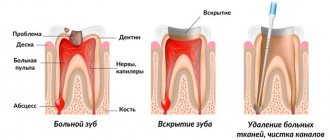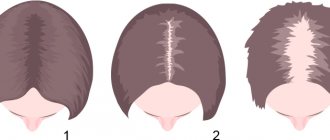Neurosis of the stomach and intestines is a sign of a psychological disorder. Many people confuse it with a gastroenterological disease. But in the absence of any problems with the gastrointestinal tract, men and women may experience strange phenomena in the abdominal area. For example, a feeling of fullness and bloating in the gastrointestinal tract even after one sip of water.
Unfortunately, gastric neurosis must be treated under the supervision of qualified doctors. Symptoms and their causes do not go away on their own, but often progress with age, complicating life activities.
What is gastric neurosis?
All systems of the human body have nerve endings, so neurosis can occur in any organ.
There are especially many of them in the gastrointestinal tract, and therefore gastric neurosis occurs quite often. Psychosomatic causes usually do not cause severe pathologies of the stomach. But pain during the development of this pathology is felt quite strongly, which is why the quality of life of the sick person is significantly reduced. Feeling severe pain, people often do not want to believe that the cause of their occurrence is psychological. However, it is important to take into account that a prolonged depressed state causes a general decrease in immunity, and failures of the immune system can provoke the development of various infectious diseases.
Psychiatrist consultation
treatment of neuroses at home and in the clinic
rehabilitation until complete recovery
We work around the clock
Call a doctor at home Leave a request and we will call you back in 1 minute
8
Or call
What does the effect of nervous tension on digestion look like in practice?
Even if you don’t feel any particular emotional stress, the lower, evolutionarily ancient parts of the brain may think differently. For some reason, they begin to prepare the body for a physical response to danger. For example, when excited, the heart beats faster, feeding the muscles with blood for fight or flight. During this period, the nervous system does everything to prepare for physical salvation, temporarily postponing such “current affairs” as, for example, managing digestion.
If nervous tension does not come to resolution and resolution, it tends to turn into permanent tension , which leads to disorganization of the control of digestion, blood vessels, immunity and hormone production. Possible symptoms:
- Fatigue and nervousness: You become exhausted from constant stimulation by stress hormones;
- Vegetative-vascular dystonia , sweating or dry skin (errors in controlling vascular tone and thermoregulation);
- Sleep disorders (stress hormones wake you up at night);
- Digestive disorders (the nervous system simply has no time for it). These can be constipation, diarrhea, indigestion, inflammatory processes in any part of the gastrointestinal tract and disturbances in the composition of the intestinal microflora.
Standard diagnoses in these cases: irritable bowel syndrome , chronic gastroduodenitis, biliary dyskinesia, peptic ulcer.
Psychotherapy and hypnosis - treatment whose results are always with you
The nervous system is the manager that controls the digestive process, from the secretion of saliva to the excretion of feces. The walls of the stomach, intestines and digestive glands are literally permeated with nerve endings and plexuses. The release (or non-release) of bile, acid and enzymes, pain, cramps, constipation, diarrhea, the formation of ulcers - all this happens at will or with the participation of the nervous system.
Our digestive system can function fully only in conditions of emotional and physical peace. This means that when further nervous tension is useless, it needs to be “turned off.” The skill of “switching off” with the transition to a state of real rest can be formed by you in the process of psychotherapy, during hypnosis . Our goal is not only to cure, but also to teach, then the result of treatment will be sustainable over time.
When the processes of excitation and inhibition in the nervous system are balanced, the natural rhythms of sleep and wakefulness are preserved, the transition from a tense state to a relaxed one easily occurs, then the gastrointestinal tract works without interruptions.
Psychotherapist. Treatment of irritable bowel syndrome at the Echinacea clinic
Diagnosis of gastroneurosis
Many signs and symptoms of gastric neurosis are identical to those that develop with gastritis.
Therefore, to correctly diagnose this disease, it is important to pay attention to the presence of psychological symptoms, such as rapid heartbeat, headaches, overexcitation, insomnia, panic attacks, phobia, hypochondria, etc. Characteristic signs of gastric neurosis in children are nervous vomiting, not accompanied by nausea. In adults, this disease often manifests itself in the form of anorexia (complete lack of appetite) or bulimia (a condition in which a person eats too much food). Both of these pathologies are dangerous and can ultimately even lead to death.
Causes of intestinal neurosis
The causes and mechanisms of the formation of intestinal neurosis have not yet been fully studied. The following provoking factors are considered relevant:
- Genetic predisposition;
- Socio-economic status;
- Phenotypic predisposition (children whose parents suffer from functional stomach disorders are prone to the disease);
- Psychological trauma;
- Motility disorders of the digestive tract;
- Changes in the neuroendocrine system;
- Inflammation that occurs without clinical symptoms;
- Previously suffered infectious intestinal diseases;
- Diet violation.
Scientists are of the opinion that not one, but several causative factors act simultaneously, which trigger several pathophysiological mechanisms.
The most significant risk factors for the development of intestinal neurosis include:
- Belonging to the female sex (the risk is 4 times higher than for men);
- Age up to 30-40 years;
- Accommodation in large cities;
- Higher, humanitarian education.
Intestinal neurosis is more common among cultural workers and mental workers, people who have a low level of social support.
Treatment options
The main therapeutic method used to treat gastric neurosis, as well as all other neurotic disorders, is psychotherapy.
Therapy involves group and individual personality-oriented sessions. During these sessions, the specialist helps the patient to discover the psychological conflict that caused the development of gastric neurosis in order to rebuild the personal relationships that caused the development of the pathology. The main task in this case for the psychotherapist is to switch the patient’s attention from the symptoms of gastrointestinal diseases to resolving the internal psychological conflict. Gastroenterological drugs are also used for treatment. They are prescribed to improve metabolic processes, eliminate spasms, normalize the secretion of gastric juice, and protect the gastric mucosa. Medicines are also prescribed to the patient for psychotherapeutic purposes - to give him confidence that treatment is being carried out. In advanced cases, the treatment regimen may also include tranquilizers and antidepressants.
More information about some diseases
- Gastritis or inflammation of the stomach lining. This is the earliest disorder in the digestive system. Under normal conditions, the mucous membrane is protected by the immune system. In people experiencing constant nervous stress, emotional stress or regular lack of sleep, the immune system is weakened and digestion is impaired, so in almost 100% of cases they suffer from gastritis.
- Peptic ulcer is a more severe lesion of the gastrointestinal tract. The disease occurs when nervous tension is not resolved for a long time. The process is further aggravated by the fact that, against a background of stress, Helicobacter pylori infection escapes the control of the immune system. This microorganism is involved in the appearance of stomach and duodenal ulcers.
- Irritable bowel syndrome (IBS) is characterized by abdominal pain due to cramping, gas, constipation or diarrhea. Since in IBS the nervous system does not properly control motility, enzyme secretion and the daily rhythm of the intestines, these symptoms are accompanied by a disturbance in the composition of the intestinal microflora. After all, the inhabitants of the intestines need certain living conditions. And these conditions during nervous overstrain are far from ideal.
- Biliary dyskinesia (BD) is associated with a violation of the regime of bile release into the digestive tract. In this case, bile is released untimely and not in physiological quantities, therefore it is not sufficiently involved in digestion. Because of this, intestinal diseases are possible. Spasms of the bile ducts can cause pain in the upper abdomen.
- Duodeno-gastric reflux and Gastroesophageal reflux disease (GERD) are the reflux of bile into the stomach and acidic gastric contents into the esophagus. Normally, there should be no movement of contents up the digestive tract. Bile and acid damage the mucous membranes of the stomach and esophagus, which can be accompanied by heartburn, belching and pain.
Our offers
Our clinic treats mental disorders in Moscow.
If you have symptoms of stomach neurosis, contact us. We employ experienced psychiatrists. They specialize in the treatment of psychosomatic diseases of various internal organs caused by psychological reasons. Our doctor will examine you, perform the necessary tests, after which he will make an accurate diagnosis and provide appropriate treatment. If necessary, a psychiatrist can visit your home.
Call by phone
Stop whining!
Unfortunately, there is no specific treatment for IBS. And you shouldn’t take probiotics (in the absence of established dysbiosis), and especially antibiotics (if there is no infection). It is difficult to get rid of this chronic ailment. You can only fight the symptoms. Nevertheless, it is necessary to be treated. After all, unstable stool not only significantly reduces the quality of life, but also leads to overload of the large intestine, increasing the risk of hemorrhoids, anal fissures, fistulas and other proctological diseases.
Article on the topic
Benefits for digestion. 10 products that make life easier for our intestines Selective antispasmodics, anticholinergic drugs, and calcium channel blockers help relieve pain. For diarrhea, anti-diarrhea medications (loperamide) and intestinal sorbents are prescribed. If you are prone to constipation, use harmless laxatives (for example, lactulose-based drugs). However, pills alone cannot solve the problem; you need to change your lifestyle, and sometimes your way of thinking. Therefore, not only gastroenterologists, but also psychologists treat IBS.
Classification
Depending on the predominant symptoms, the following forms of pathology are distinguished:
- Nervous vomiting . There is no nausea. Vomiting occurs suddenly, and there is a connection with intense emotional experiences (fear, disgust, etc.).
- Gastrointestinal neurosis with aerophagia . The patient involuntarily swallows air, as a result of which persistent strong belching develops, usually accompanied by flatulence.
- Dyspepsia with reduced acidity . Insufficient digestion of food provokes pain, constipation and loss of appetite.
- Anorexia and bulimia . In the first case, the patient refuses food, in the second, he suffers from bouts of gluttony with subsequent attempts to get rid of what he has eaten.
- Gastroneurosis with heartburn . The course resembles other gastric diseases accompanied by heartburn, but differs from them in the high stability of manifestations. Unpleasant sensations persist even when following a diet and taking medications.
Symptoms
Patients complain of epigastric discomfort. The pain ranges from mild to severe and can be bursting, tingling or burning. A typical symptom is premature satiety, a feeling of fullness that occurs when eating even a small amount of food. Other symptoms depend on the form. Vomiting, belching, and bloating are possible. There is a deterioration in appetite and a change in taste preferences.
Neurotic manifestations are divided into two groups: general and emotional. The first group includes decreased ability to work, increased fatigue, constant fatigue, headaches, and insomnia. The second is anxiety, tearfulness, irritability, excessive emotional reactions to minor stimuli. As a rule, pathological autonomic reactions are detected: frequent urination, palpitations, increased sweating, etc.
With a long course of the disease, weight decreases. Due to a lack of nutrients, dystrophic changes develop in the internal organs. Swelling and anemia occur, hair and nails become brittle. Cognitive functions suffer. The likelihood of developing organic diseases of the upper gastrointestinal tract increases: gastritis, ulcers, Mallory-Weiss syndrome.
More rare causes of burning pain and heartburn associated with diseases of the stomach and esophagus:
- Esophageal carcinoma. Very rare. At increased risk are smokers and people who drink a lot of alcohol.
- Gastroparesis. One of the possible complications of diabetes, when a constant increase in blood sugar levels leads to damage to the nerves that ensure contraction of the stomach wall.
- A dangerous condition is a dissecting aneurysm of the abdominal aorta with rupture. The aorta is the largest artery in the human body; the blood pressure in it is the highest. In some people (most often men over 50 years of age, suffering from arterial hypertension, atherosclerosis), the inner layer of its wall may rupture, as a result it peels off from the outer one, and blood flows between them. One of the possible manifestations of this condition is severe burning pain around the navel, which occurs suddenly and radiates to the lower back. The patient needs emergency medical attention; if aortic dissection is suspected, an ambulance should be called immediately.
We will call you back
Message sent!
expect a call, we will contact you shortly









